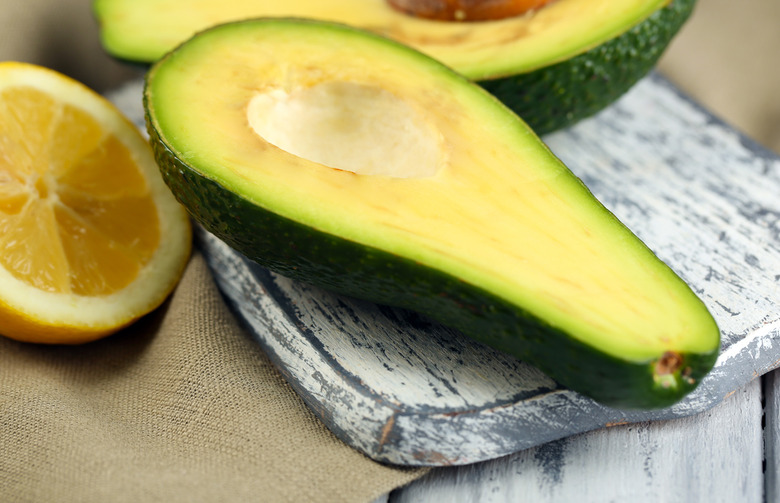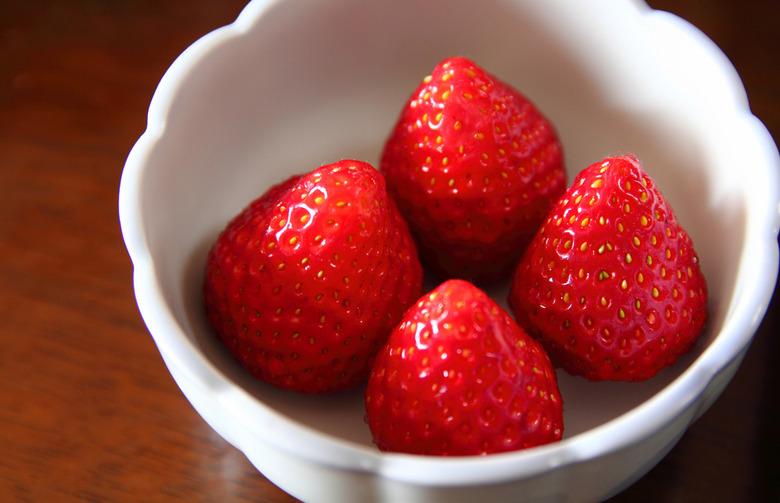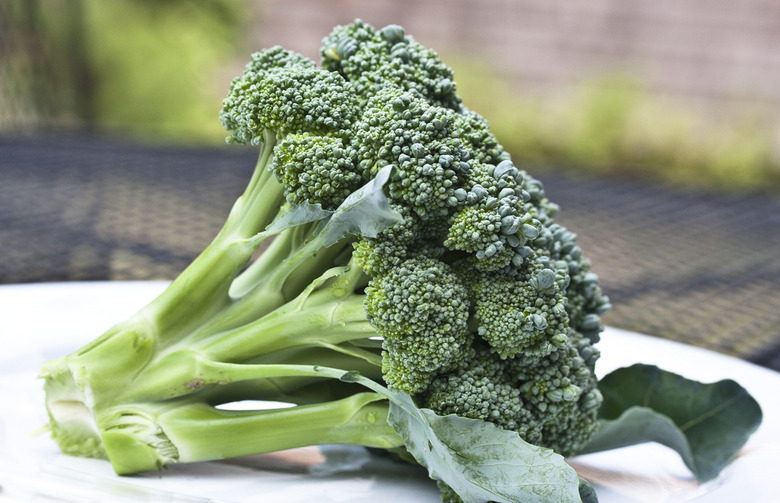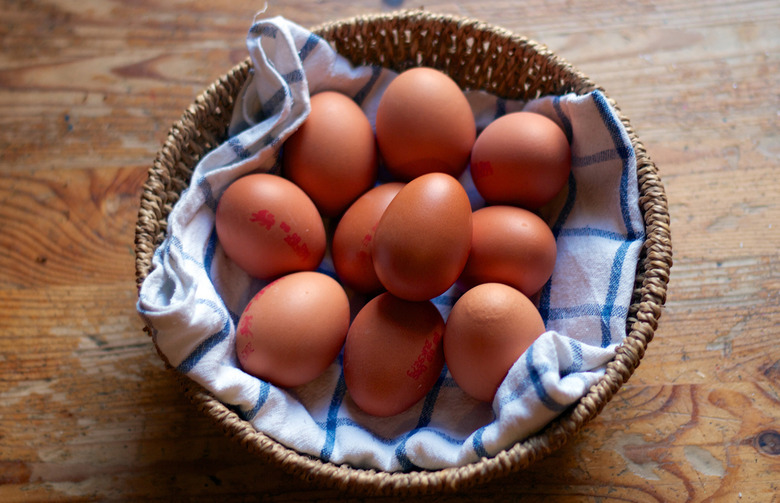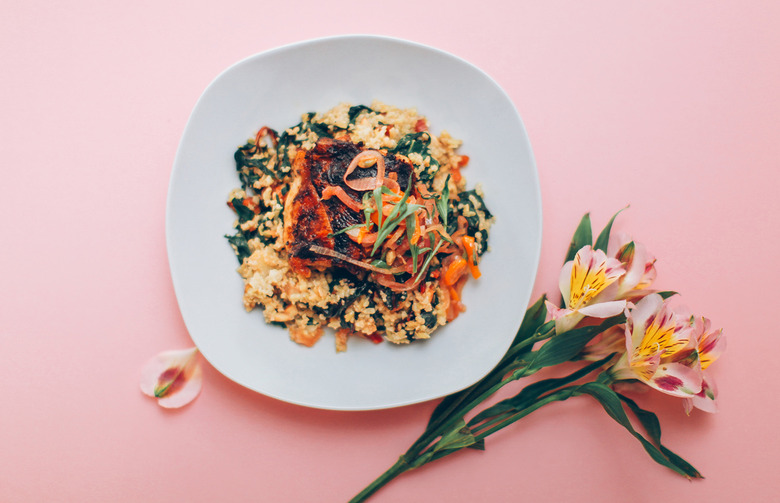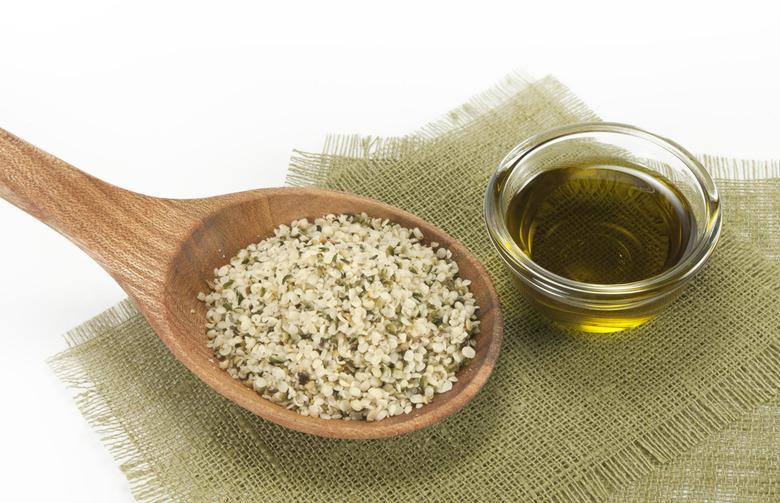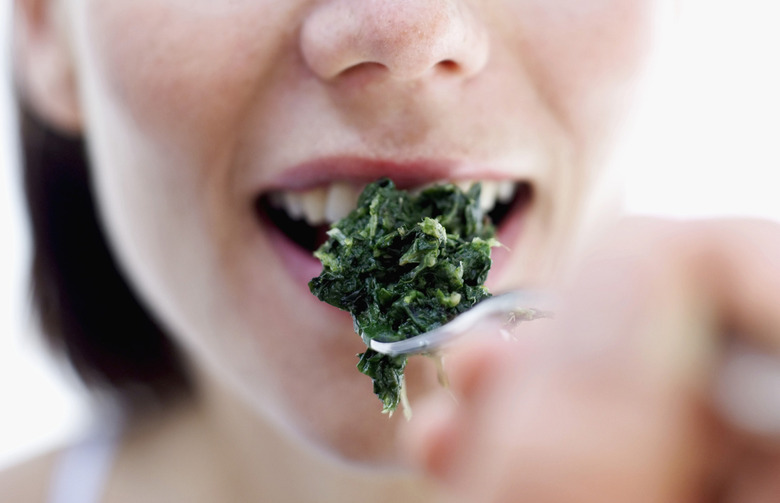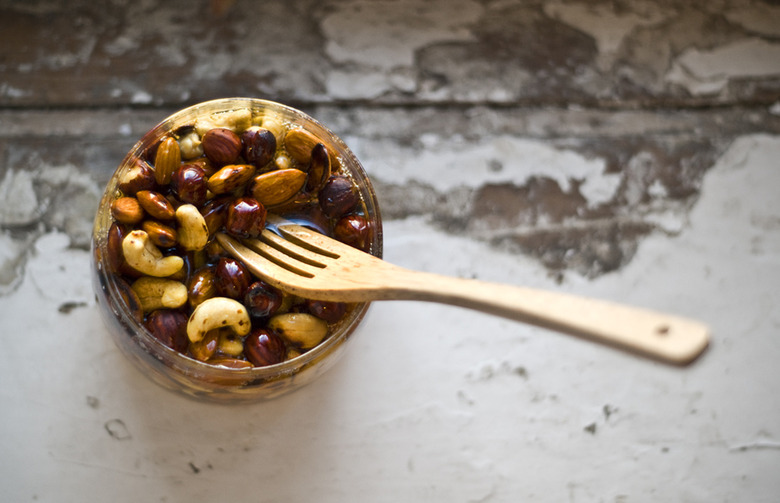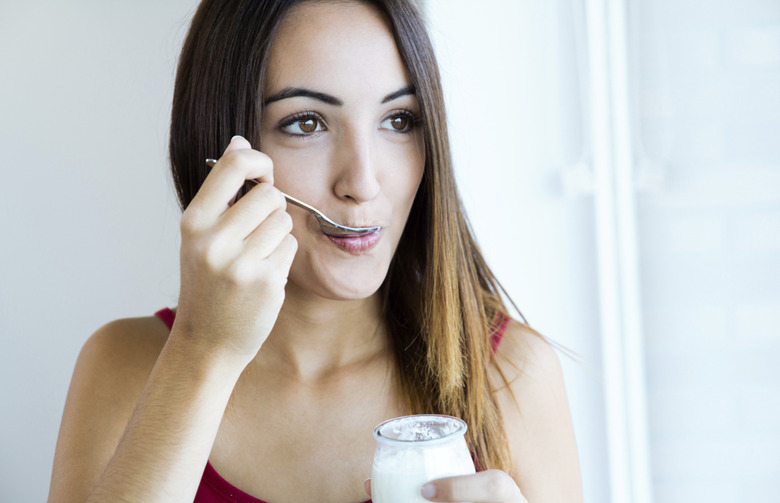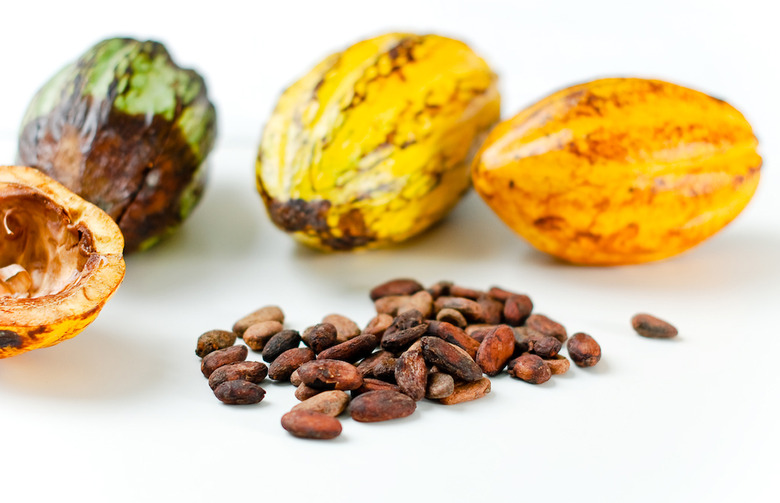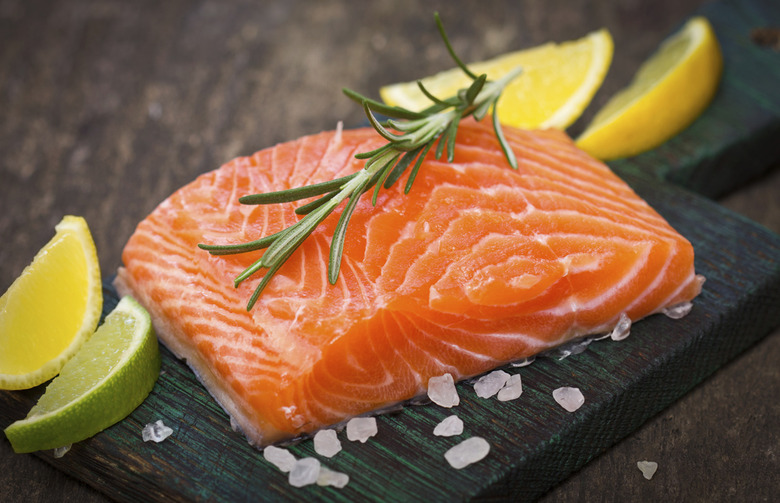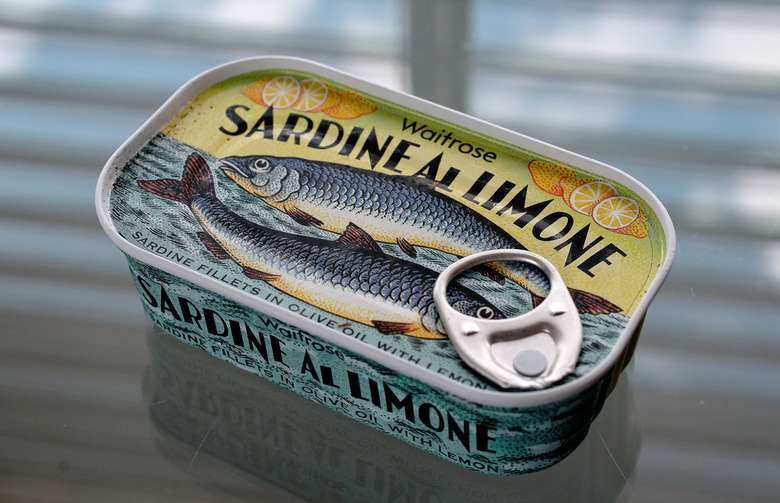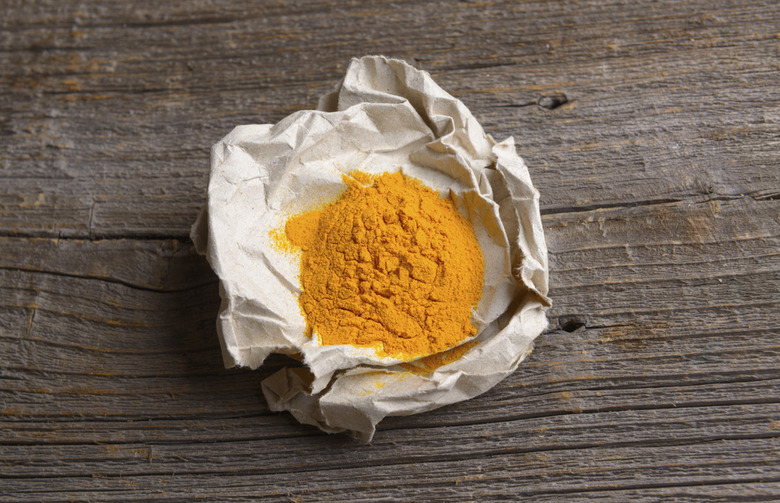Pay Attention! 14 Foods That Will Boost Your Concentration
"There are so many variables that play into concentration, such as how much sleep an individual gets, if they exercise or not, and even the mood they are in," says Bridget Bennett, nutritionist from Indie Fresh. "As always, a healthy, balanced diet is the foundation that we start with." A balanced diet involves a wide variety of whole foods such as fruits, vegetables, whole grains, lean proteins, and good fats.
Avocados
When you are looking to feed your brain directly, reach for this superpower fruit. "Avocados contain oleic acid, a fatty acid that is a major component of myelin, a fatty material that protects nerve cells and supports the flow of nerve signals throughout the body," according to Brianna Diorio, nutritionist for The Vitamin Shoppe. "The monounsaturated fatty acids found in avocados also help keep brain cell membranes flexible and promote healthy blood flow to the brain. Spread it on toast or add it to your smoothie to create a creamy texture or go with the classic take on avocado and whip up your best guacamole mix."
Berries
"Berries are loaded with anthocyanins, powerful phytochemicals that give these delicious edible gems their vibrant purple, red, and blue hues," says Mareya Ibrahim, also known as The Fit Foodie. "A 2012 Harvard study found that women who ate at least one cup of blueberries and strawberries per week experienced a sizeable two-and-a-half year delay in mental decline relative to women who rarely ate berries. With that in mind, try adding blackberries, blueberries, raspberries, or strawberries to your yogurt, cereal, pancake, and muffin batter."
Broccoli
"Broccoli has a lot of potassium and is great for brain function," says Stacy Isaccs, who works in Asian medicine. "It also has magnesium and calcium to help regulate blood pressure. It's also good to clear your body of excess heat and it actually can help your vision too."
Eggs
Eggs are one of the most convenient and cheapest brain foods around. "Eggs are a great source of many brain boosting nutrients such as B12, lecithin, and choline," says Diorio. "Choline is a vitamin-like essential nutrient, which plays a major role in neurotransmitter synthesis. Eggs also contain essential fatty acids that act as important building block for brain cells and neurons, helping to support memory and concentration." You can hard boil eggs earlier in the week so that you have them as a snack to satisfy your appetite and your brain.
Freekeh
Bring on the fiber with freekeh. "Freekeh is the end result of working with immature grain, so it keeps the high nutritional content wheat plants have in their early stages," Ibrahim notes. "Freekeh contains more protein, fiber, and minerals than mature wheat, and ranks low on the glycemic index. What's more, freekeh contains both fiber and resistant starch — two key ingredients in any weight loss diet. When compared to other grains, freekeh's fiber content is unquestionably superior; compared to brown rice, freekeh contains three times the fiber, and two times the fiber compared to quinoa."
Grapeseed Oil
"People who ate a Mediterranean-style diet rich in grapeseed oil, nuts, whole grains, fish, legumes, and vegetables were 30 percent less likely to suffer from depression, compared to those who had the lowest Mediterranean diet scores, according to a study the Archives of General Psychiatry," Ibrahim says. "The mix of nutrients in this happy diet can keep your spirits up, scientists say."
Hemp Seeds
"Hemp seeds are high in protein, easily digestible, and contain a full complement of amino acids," says Isaacs. "They contain disease-fighting phytonutrients that are good for your blood, immune system, tissues, and skin. Hemp contains a specific fatty acid that acts as a powerful anti-inflammatory. It also helps balance hormones, making it a great choice to fight the symptoms of PMS. This super seed is also good for your liver and your brain."
Leafy Greens
"A nutrient deficient body isn't working at max capacity," according to Sarah Jacobs and Rachel Brown, founders of The Wellness Project. "Get the most bang for your caloric buck with greenery. Not to mention the abundant antioxidants found in plant life that protect your brain. You should be getting a dose of the goodness every day."
Nuts
"Omega-3 fatty acids, found in foods such as walnuts, can promote nerve elasticity within the brain, possibly improving its function," says Bridget Bennett, nutritionist from Indie Fresh. "These essential nutrients are best when obtained right from the foods that contain them and not by popping a supplement."
Probiotics
"A gut full of bad bacteria can have a surprisingly unfortunate effect on the brain," Jacobs and Brown note. "Recent studies show that the gut-brain connection is a powerful one. An imbalance can cause brain fog, anxiety, and a slew of other issues that could result in exhaustion. Eat plenty of fermented foods such as sauerkraut, low-sugar yogurt, kombucha, and tempeh, or you can take a high quality probiotic supplement."
Raw Cacao
"Raw cacao has more antioxidants than blueberries, green tea, and red wine," Isaacs says. "This is why it's good for your heart and it has been shown to aid in fighting some cancers. Cacao also is good for the brain; it wakes up your neurotransmitters and just makes you feel better."
Salmon
"A deficiency in Omega-3 can have a mega impact on brain function," Jacobs and Brown point out. "This deficiency has been liked to low concentration and focus. Due to the abundance of low-grade oils in processed food, the standard diet is fairly low in Omega-3s. A few portions of salmon a week is a great way to keep the mind fueled."
Sardines
"Don't be scared of these powerful, little fish just because they often come in a can," says Ibrahim. "Sardines are high in omega-3s, contain virtually no mercury, and are loaded with calcium. They also contain iron, magnesium, phosphorus, potassium, zinc, copper and manganese as well as a full complement of B vitamins. If you can find the fresh ones, even better."
Turmeric
"Turmeric is referred to as 'holy powder' in Ayurvedic medicine," says Diorio. "This yellow spice packs some serious brain boosting benefits. Curcumin, the principal component of turmeric and the compound responsible for its yellow color, is a powerful antioxidant with neuroprotective properties. Curcumin's natural antioxidant properties may help to protect the brain against free radical damage."

